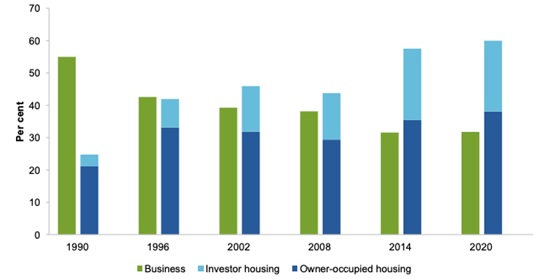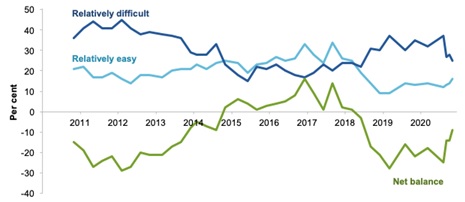Investing in Refinanced SMEG Loans: An Attractive Opportunity for Private Credit Funds
Small and medium-sized enterprises (SMEs) have historically struggled to secure financing from traditional banks due to stricter lending requirements and capital requirements following the banking royal commission and Basel III regulations. However, during the Covid-19 pandemic, the Australian government implemented the SME Recovery Loan Scheme, commonly referred to as the SME Loans Guarantee Scheme (SMEG), which guaranteed loans of up to $5 million.
The SMEG loan program was implemented by the government in March 2020 and many of these loans are now maturing or in need of refinancing. A SMEG loan was a facility written to a small-medium sized business guaranteed by the Australian government. The program supported secured or unsecured loans up to $5 million and a maximum loan term of 10 years, although many had a term of 3-5 years. Under the Scheme, the government provided guarantees of 80 per cent for loans written from 1 April to 31 December 2021 and 50 per cent for loans written from 1 January to 30 June 2022 (when the program ended). Interest rates were determined by lenders, depending on factors such as the availability of security, loan term and whether repayment holidays applied. However, rates were capped at 7.5% for fixed rate loans and 7.5% + the Bank Bill Swap Bid rate for variable loans, with many written as low as 3.5%. Types of loans included term loans, overdrafts, working capital and revolving facilities, leases and hire purchase agreements.
There were 22 participating lenders in the scheme which included the big 4 banks, 2nd tier banks such as Suncorp, BOQ, Judo and non-bank lenders such as Earlypay and Moneytech Finance. Each participating lender was assigned an allocation of the $40 billion Scheme and can apply for payment of the guaranteed amount for impaired loans until 30 September 2033.
After the program's introduction, commercial banks resumed lending to SMEs. However, now that the program has ended and a number of these loans are reaching maturity, the banks are once again looking to withdraw from the market. This presents an opportunity for private credit funds to intervene and address the gap in SME lending by refinancing these loans.
As depicted in the graph below, over the last 3 decades Australian Banks have been shifting away from SME lending (period from 1990 to 2020). This withdrawal has primarily been led by tighter lending standards (post GFC and the Royal Commission), coupled with increasing capital requirements needed against SME loans post the implementation of Basel III (in 2021). Where banks have ceded market share, non-bank lenders have stepped in providing much needed financing to businesses and offered attractive yield and capital preservation to investors.

Banks Have Shifted Away from Business Lending – Share of Bank Lending to Each Sector, 1990-2020
Source: Australian Government, SME Access to Finance
While there was a net improvement in SME’s ability to access finance during COVID (refer graph below), this was driven by the confidence banks had with the support of the SMEG. In total, $15.9bn was lent to around 104,000 business between March 2020 and November 2022, leading to an improvement in SME’s Ability to Access Finance (Source: Australian Government Treasury). Our expectation is the net finance measure will retrace again to pre-COVID levels over the next 12 to 24 months.

SME’s Ability to Access Finance, 2010-2020
Source: Australian Productivity Commission
Of the $15.9bn which was lent during COVID, $10.6bn remains outstanding and without the government guarantee, Australia’s commercial banks will once again step back, presenting an opportunity to refinance these loans by non-bank lenders.
Private credit funds can offer more adaptable financing solutions by directly negotiating with borrowers to achieve tailored terms, and personalised service. Active private credit funds take a longer-term investment horizon and gets more directly involved with management to assist and add value to these businesses. Partnering with these companies helps to proactively manage potential risks and unlock value drivers identified during the due diligence process, ultimately leading to improved credit positions and increased return via attaching equity instruments.
Investing in refinanced SMEG loans is not without risks and challenges. Borrowers may default on their loans, changes in government policy could affect the program, and market volatility could impact returns. However, private credit funds can mitigate these risks through effective investment selection, diversification, risk management strategies, and active management.
Refinanced SMEG loans represent an attractive investment opportunity for private credit funds to fill the lending gap as banks pull back from the SME market. Private credit funds can add value to the refinancing process and management of the loans through customised solutions, flexible terms, and active management.
4 topics

